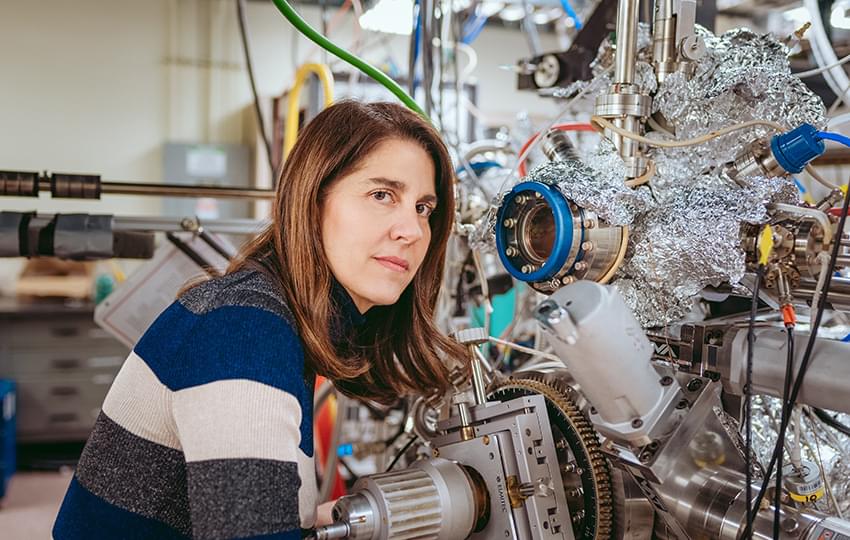In a new study, scientists have observed long-lived excitons in a topological material, opening intriguing new research directions for optoelectronics and quantum computing.
Excitons are charge-neutral quasiparticles created when light is absorbed by a semiconductor. Consisting of an excited electron coupled to a lower-energy electron vacancy or hole, an exciton is typically short-lived, surviving only until the electron and hole recombine, which limits its usefulness in applications.
“If we want to make progress in quantum computing and create more sustainable electronics, we need longer exciton lifetimes and new ways of transferring information that don’t rely on the charge of electrons,” said Alessandra Lanzara, who led the study. Lanzara is a senior faculty scientist at the Department of Energy’s Lawrence Berkeley National Laboratory (Berkeley Lab) and a UC Berkeley physics professor. “Here we’re leveraging topological material properties to make an exciton that is long lived and very robust to disorder.”
